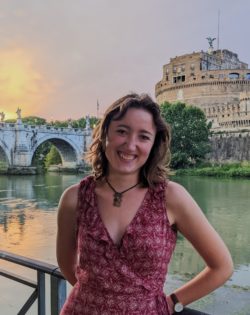Elizabeth Eastwood Dewing, School of History
Elizabeth Eastwood Dewing, School of History
Campbell's Soup and Dostoevsky: can 'art' be history?
Our modern world is saturated with image, music and art, often to such an extent that we are not even aware that it is there. From the first cave paintings to Drake, the arts have been used to express joy, anger, subvert the status quo and free our imaginations.
But when studying the past, such central parts of the human existence are often shunted to the side as ‘unreliable’ and overly subjective sources. In a world obsessed with empirical evidence, the expressive and emotive powers of a poem written in 1813 calling for revolution, a scarf embroidered by a Palestinian exile in Damascus or the lyrics of the Beatles’ Eleanor Rigby are disregarded. However, through such artefacts, a true insight is offered, not just into the lives of the creators but the contexts in which they are working and the intended, and true impact that such objects have on those whose lives brush against them.
In this talk, I will examine the impact that reinstating such multifaceted works as historical sources can have on our understanding of the past. For surely, as a species so shaped by the arts, only through them can we truly understand, and connect, to the people who trod this world before us.
 BA English & History, Second Year (she/her)
BA English & History, Second Year (she/her)
Beth is a second year English and History student. When she started doing that inevitable English student thing of reading classics, she became fascinated by the way that books, so often detached from their time by their status as ‘literature’, can tell us so much about the context which they emerged from by often subverting normal restrictions such as censorship, but yet are so often ignored by historians. When not reading, she can be found outside, preferably running over the fells but anything under an open sky will do.
